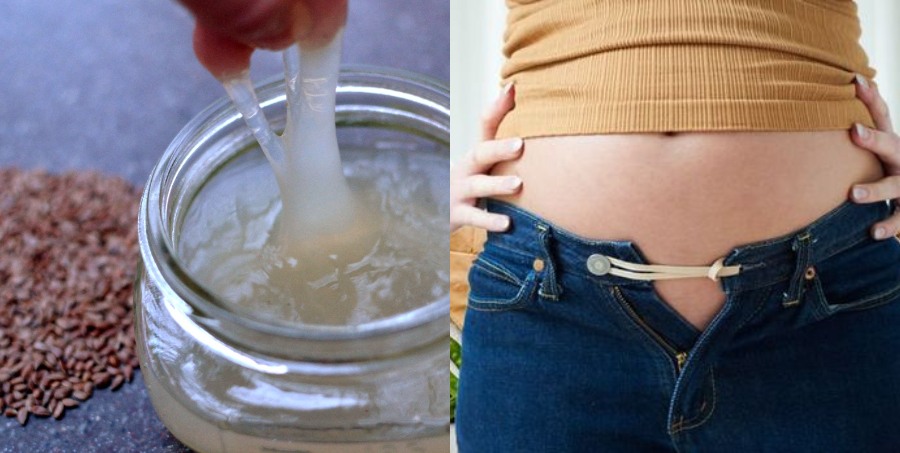Unhealthy eating habits and sedentary lifestyle are largely blamed for weight gain and obesity; however, unknown to many, there are factors called as “obesogens” all around us, particularly lurking around in our homes, that disrupt endocrine activities, hamper hormonal functions needed in the fat-burning process, and encourage body to store fat, leading to weight gain. These obesogens are chemicals that interfere with the normal functioning of hormones (read 18 Foods That Can Help Balance Hormones that Cause Weight Gain) that are responsible for regulating mechanism and maintaining optimum weight. They can potentially damage the body’s natural weight-control mechanisms and trigger creation of new fat cells as well as increase the storage capacity of existing fat cells. If you haven’t seen any progress in weight loss despite exercising and sticking to dieting routine strictly, blame it all on the inhibiting properties of “obesogens.” It’s essential to weed out these obesogens from our daily life for not only losing weight but also to improve overall health since many of these environmental obesogens are endocrine-disrupting chemicals that interfere with a lot of body functions and weight gain is just one of the many health issues. In this post, we go into detail about 7 common obesogens in your home that trigger weight gain.


How Obesogens in your Home Trigger Weight Gain?
The most common obesogens tend to mimic the hormone estrogen, altering their function, and encouraging fat storage. Don’t be surprised if we tell you that on an average, each one of us may be exposed to at least 20 such obesogens, and they can reach you via vegetables laden with pesticides, ingredients in processed and junk food, plastic containers that we store food in, cleaning agents, detergents, skincare products, makeup, and even house dust on your window sill!
These obesogens then play havoc with hormones that regulate metabolism, control weight, regulate hunger and appetite, and makes them act in a way that they start accumulating fat instead of burning it out. They have been found to deprogram stem cells and turn them into fat cells. Since the body protects you from toxins by creating new fat cells around toxins, adding to weight gain. These new fat cells that are created against such toxins do not function like regular fat cells. These newly-created fat cells are hard to burn because they do not actively participate in the fat-burning process even with proper diet and exercise. The hormone “leptin,” which is fullness/satiety hormone becomes ineffective against such cells because they have toxins inside and do not function like regular fat cells. When leptin does not function normally, you remain in a constant state of hunger and would crave for more and more food. Another metabolism-regulating hormone that these toxins interfere with is “thyroid!” Thyroid hormones help regulate metabolism and their normal functioning is imperative to prevent weight gain. As we have mentioned previously too, a lot of hormones are needed in the fat-burning process, and when obesogens interfere with their functioning, weight loss becomes extremely difficult to achieve.

Most obesogens work by interfering with the activities of estrogen, thyroid, and insulin hormones mainly. The outcome is usually lowered metabolism, thyroid malfunction, insulin resistance, and heightened inflammation – in all cases – where the body starts to store fat and slowly builds up weight, which is difficult to lose even with proper diet and exercise.
Common Obesogens in your Home That Trigger Weight Gain:
1. BPA or Bisphenol-A: Have you seen plastic brands announce that they are BPA free? That’s because BPA has seen to have toxic effects in human body. BPA has a structure that is similar to “estrogen,” and causes insulin resistance, cardiovascular disease, breast cancer, infertility, and weight gain. BPA is found in low-quality plastics, canned foods, and on receipts too! BPA also alters the function of hormones like insulin too, and creating insulin resistance. As we all know, insulin is a hormone that regulates blood sugar and triggers fat storage too, and that’s why you should avoid BPA-laden products at all cost. Cut out as much plastic products as you can and do remember to sanitize or wash your hands to avoid the toxin getting into your body.
2. Phthalates: These chemicals reach your body through packaged foods, plastic wraps, deodorants, body lotion, skincare and haircare products, and even toys. Phthalates lead to weight gain by lowering metabolism and tend to raise the number of fat cells in the body. To prevent phthalates, avoid food that comes packaged in plastic, and phthalate-free skincare and hair care products.
3. Atrazine: This chemical is a pesticide that finds it way through food and drinking water and can alter hormonal function and leads to weight gain. Go organic and stick to pesticide-free food products.
4. Monosodium Glutamate: There’s been a huge controversy surrounding the use of MSG (monosodium glutamate) in food products to enhance their flavour, but it has been found to promote weight gain and obesity by altering the functions of estrogen and testosterone hormones.
5. Triclosan: If your hand sanitizer contains triclosan, it’s time to find other alternatives to sanitize hands because it’s an anti-microbial agent that would also alter endocrine functions and hormonal activity, making one overweight. Triclosan is also found in shampoos, soaps, cleaning agents, and also in deos.
6. Perfluorooctanoic acid (PFOA): This is an obesogen that is most commonly found in non-stick cookware coated with Teflon and even popcorn that comes in microwavable bags, and this chemical is found to have endocrine-disrupting properties. To counter this, “pop” your own popcorn with corn kernels and switch to stainless steel or iron cookware.
7. House Dust: Did you say “what?” Dust lurking around the carpets, curtains, floor, etc., can have chemicals trapped inside them, which when inhaled, can change the way hormone functions and can cause fat cells to grow. Various studies have reported that exposure to dust can actually trigger creation of fat cells that would eventually lead to weight gain.
So, to avoid these obesogens, opt for organic and pesticide-free food products, switch to phthalate and triclosan free skincare and haircare products, go plastic free and opt for glass containers, make a proper cleaning routine to make house dust free, detox by eating healthy food (8 Detox Smoothies to Kick Start Metabolism), avoid processed food, and switching to a proper diet routine such as on Rati Beauty app.
18 Foods That Can Help Balance Hormones that Cause Weight Gain
21 Tricks to Boost your Metabolism





